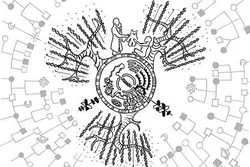
The Art and Science of Searching in Systematic Reviews 
This course provides an in-depth exploration of searching techniques for Systematic Reviews. It covers a wide range of topics, from clinical questions to social science, environmental science, policy and more. Participants will gain an understanding of the art and science of searching, and how to apply it to their own research. ▼
ADVERTISEMENT
Course Feature
![]() Cost:
Cost:
Free
![]() Provider:
Provider:
Edx
![]() Certificate:
Certificate:
Paid Certification
![]() Language:
Language:
English
![]() Start Date:
Start Date:
Self paced
Course Overview
❗The content presented here is sourced directly from Edx platform. For comprehensive course details, including enrollment information, simply click on the 'Go to class' link on our website.
Updated in [March 06th, 2023]
This course, The Art and Science of Searching in Systematic Reviews, provides an overview of the search methods used in systematic reviews. It covers topics such as concept modelling, synthesizing a search strategy, and managing search results. Participants will gain an understanding of how to apply these methods to a wide range of disciplines, including social science, environmental science, policy studies, sciences, health sciences, and more. The course is designed to help researchers doing systematic reviews to search systematically from start to finish.
[Applications]
The application of this course can be seen in a variety of disciplines. Researchers can use the search methods taught in this course to develop a comprehensive search strategy for their systematic reviews. This course also provides guidance on how to manage search results and synthesize a search strategy. Additionally, the concept modelling taught in this course can be used to identify relevant terms and concepts for a systematic review.
[Career Paths]
1. Clinical Research Analyst: Clinical Research Analysts are responsible for conducting research and analyzing data to support clinical trials and other research projects. They are responsible for designing and executing research protocols, collecting and analyzing data, and preparing reports and presentations. They must have strong analytical and problem-solving skills, as well as knowledge of research methods and data analysis techniques. The demand for Clinical Research Analysts is expected to grow as the healthcare industry continues to expand.
2. Systematic Reviewer: Systematic Reviewers are responsible for conducting systematic reviews of the literature to answer clinical questions. They must have strong research skills and be able to identify, evaluate, and synthesize relevant literature. They must also be able to develop search strategies and interpret the results of the review. Systematic Reviewers must be able to communicate their findings effectively to stakeholders. The demand for Systematic Reviewers is expected to grow as the healthcare industry continues to expand.
3. Data Scientist: Data Scientists are responsible for analyzing large datasets to uncover patterns and insights. They must have strong analytical and problem-solving skills, as well as knowledge of data analysis techniques. They must also be able to communicate their findings effectively to stakeholders. The demand for Data Scientists is expected to grow as the need for data-driven decision-making increases.
4. Health Informatics Specialist: Health Informatics Specialists are responsible for managing and analyzing healthcare data. They must have strong analytical and problem-solving skills, as well as knowledge of healthcare data systems and data analysis techniques. They must also be able to communicate their findings effectively to stakeholders. The demand for Health Informatics Specialists is expected to grow as the healthcare industry continues to expand.
[Education Paths]
1. Master of Science in Library and Information Science: This degree program focuses on the development and management of information resources and services in libraries, archives, museums, and other information centers. It also covers the use of technology to access and manage information. This degree is becoming increasingly important as the world becomes more digital and the need for information professionals grows.
2. Master of Science in Data Science: This degree program focuses on the analysis and interpretation of large datasets. It covers topics such as data mining, machine learning, and predictive analytics. This degree is becoming increasingly important as organizations rely more and more on data-driven decision making.
3. Master of Science in Information Systems: This degree program focuses on the design, implementation, and management of information systems. It covers topics such as database design, software engineering, and network security. This degree is becoming increasingly important as organizations rely more and more on technology to store and manage their data.
4. Master of Science in Knowledge Management: This degree program focuses on the management of knowledge within organizations. It covers topics such as knowledge sharing, knowledge discovery, and knowledge representation. This degree is becoming increasingly important as organizations rely more and more on knowledge-based decision making.
Course Provider

Provider Edx's Stats at AZClass
Discussion and Reviews
0.0 (Based on 0 reviews)
Explore Similar Online Courses

Machine Learning: Clustering & Retrieval

Why Smart Executives Fail: Common Mistakes & Warning Signs

Python for Informatics: Exploring Information

Social Network Analysis

Introduction to Systematic Review and Meta-Analysis

The Analytics Edge

DCO042 - Python For Informatics

Causal Diagrams: Draw Your Assumptions Before Your Conclusions

Whole genome sequencing of bacterial genomes - tools and applications

Healthcare Research: For Healthcare Professionals

Diagnosing Rare Diseases: from the Clinic to Research and back

African Vaccines Regulatory Forum clinical trials inspections
 Related Categories
Related Categories
 Popular Providers
Popular Providers
Quiz
 Submitted Sucessfully
Submitted Sucessfully
1. What is the focus of this course?
2. What disciplines does this course cover?
3. What is the main goal of this course?
4. What is the main focus of this course?
Correct Answer: Searching methods for systematic reviews.


Start your review of The Art and Science of Searching in Systematic Reviews